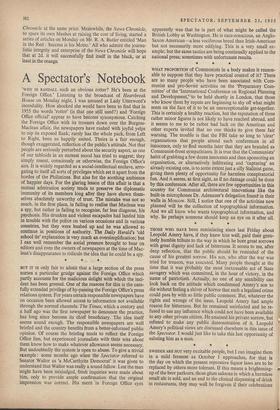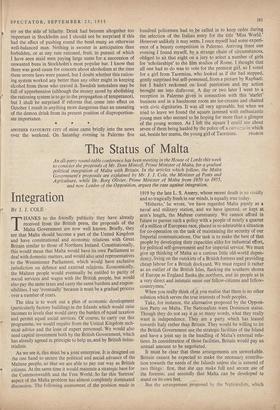SWEDES ARE NOT very excitable people, but I can imagine
them in a mild ferment as October 1 approaches, for that is the day on which the present repressive liquor laws are to be replaced by others more tolerant. if this means a brightening- up of the beer parlours, those glum saloons in which a harmless small ale is sold, and an end to the clinical dispensing of drink in restaurants, they may well be forgiven if their celebrations err on the side of hilarity. Drink had become altogether too important in Stockholm and I should not be surprised if this had the effect of pushing round the bend many an otherwise well-balanced man. Nothing is sweeter in anticipation than forbidden, or at any rate rationed, fruit, in pursuit of which I have seen staid men paying large sums for a succession of unwanted buns in Stockholm's most popular bar. I know that there was good cause for concern about alcoholism at the time these severe laws were passed, but I doubt whether this ration- ing system worked any better than any other might in keeping alcohol from those who craved it. Swedish teetotalers may be full of apprehension (although the money saved by abolishing the rationing system is to go to the propagation of temperance), but I shall be surprised if reforms that come into effect on October 1 result in anything more dangerous than an unseating of the demon drink from its present position of disproportion- ate importance.

































 Previous page
Previous page